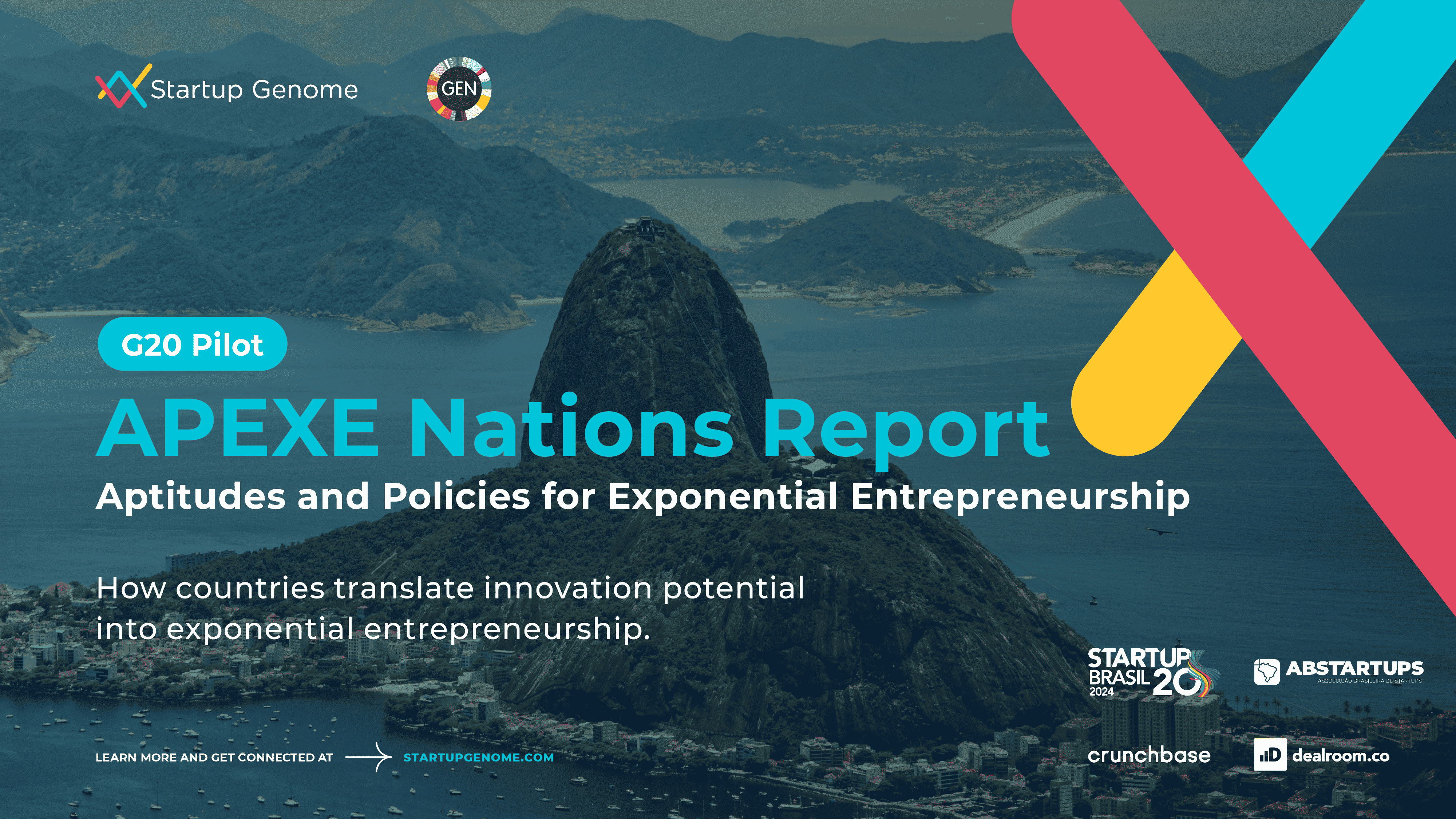Introducing the APEXE G20 Pilot Methodology and Ranking
SAN FRANCISCO, CA / ACCESSWIRE / November 14, 2024 / This week at the G20 Social Summit in Rio de Janeiro, Startup Genome and the Global Entrepreneurship Network (GEN), in collaboration with ABStartups and Startup20, are launching the inauguralG20 pilot of the APEXE Nations Report. APEXE, which stands for "Aptitudes and Policies for Exponential Entrepreneurship," offers a pioneering data-driven framework designed to help countries measure their startup ecosystem potential and effectiveness. The rankings are driven by an innovative set of factors which determine the degree a country has translated its potential into exponential entrepreneurship.

This pilot report is limited to G20 nations, with plans to expand coverage and indicators in future editions, positioning the Report as a critical tool for economic growth through entrepreneurship. Drawing on the partners' decade-long global experience advising over 170 ministries and public/private agencies, and publishing its annual city-level flagship study, the Global Startup Ecosystem Report, APEXE leverages an unparalleled database of ecosystem insights, empowering economic development and enabling innovation ministries to gauge their startup policies' effectiveness and impact.
Key Insights from the APEXE 2024 Pilot Report
Top Performers: The United States and the United Kingdom lead the G20 in translating innovation into thriving startup ecosystems, showcasing high Lab-to-Startup scores and strong policy support for entrepreneurship. India and Brazil also stand out with impressively high Ecosystem Value-to-GDP ratios, demonstrating the ability to scale startups despite their less developed innovation foundations relative to other G20 economies.
Underperformance in High-Innovation Economies: Some highly-innovative countries, like Australia, Germany, and Japan, underperform in their startup activity relative to their potential, signaling a need for targeted policies to bridge this gap.
Unlocking $2.7 Trillion in Economic Value: The report estimates that if lower-performing G20 nations could achieve Ecosystem Values relative to their GDP at the levels of the current top quartile, it would add up to $2.7 trillion in global Ecosystem Value, catalyzing growth and resilience worldwide.
"Today, Startup Genome and GEN are giving the economic development and innovation ministries of national governments, for the first time, a balanced scorecard of the effectiveness of their policy actions and gaps at translating their innovation potential - measured fairly across countries - into a tech entrepreneurship engine for their societies, and a compass as to what they can do better." - JF Gauthier, Founder and CEO of Startup Genome
The expanded APEXE Nations Report, scheduled for release in 2025 at the Global Entrepreneurship Congress, will provide detailed findings across more countries, together with an expanded methodology and additional insights. Through the APEXE Nations Policy Index and Audit Tool, policymakers will further gain access to comprehensive analysis and peer comparisons across critical startup-related policies, equipping them with essential resources to drive policy improvements and economic growth.
View the full APEXE Nations Report - G20 Pilot here - LINK.
We are hosting a Webinar on November 26 at 1:30 p.m. GMT to share key insights and explore how the framework can be used globally to advance the entrepreneurial landscape. Please register here.
Contact Information:
Franzis Walther
Manager, Operations & Communications, Startup Genome
franzis@startupgenome.com
SOURCE: Startup Genome
View the original press release on newswire.com.






